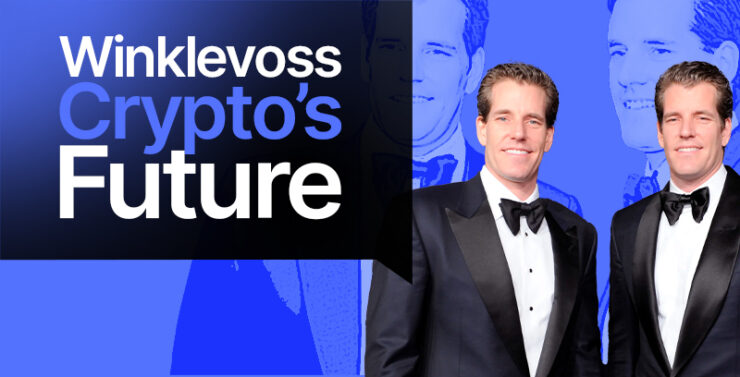The Winklevoss twins, Cameron and Tyler, are no strangers to high-stakes battles. From their high-profile legal dispute with Mark Zuckerberg over Facebook to their early bets on Bitcoin, their journey through the cryptocurrency industry has been marked by bold investments, regulatory confrontations, and an unwavering belief in digital assets. As the industry shifts under mounting scrutiny, their legacy is being shaped not just by their financial ventures, but by their role in defining the rules of the game.
Born in Southampton, New York, in 1981, the identical twins gained national attention while studying at Harvard. In 2002, they co-founded HarvardConnection, later rebranded as ConnectU, alongside classmate Divya Narendra. The social networking platform became the subject of a legal battle with Zuckerberg, whom they accused of stealing their idea to create Facebook. The 2008 settlement of $65 million in cash and stock would later fuel their next major bet—Bitcoin.
By 2012, the twins had established Winklevoss Capital Management, focusing on early-stage investments in disruptive technologies. Their most consequential decision came the following year when they poured $11 million into Bitcoin, acquiring approximately 1% of all Bitcoins in circulation when the cryptocurrency was trading at around $120 per coin. The gamble paid off, solidifying their position among the wealthiest figures in crypto.
Building Gemini and the Push for Regulation
In 2014, recognizing the need for a secure and regulated platform for digital asset trading, the twins launched Gemini, a cryptocurrency exchange based in New York.
Unlike many crypto platforms that operated in legal gray areas, Gemini prioritized compliance. It became the first licensed cryptocurrency exchange in New York in 2017 and later obtained certifications such as ISO/IEC 27001:2013 and SOC 2 Type 2. Their approach—branded as “Asking permission, not forgiveness”—set them apart from competitors like Binance and FTX, which took a more aggressive stance against regulatory oversight.
The twins also sought to launch a Bitcoin Exchange-Traded Fund (ETF), filing a proposal with the U.S. Securities and Exchange Commission (SEC) in 2013. However, their efforts were repeatedly blocked, with regulators citing concerns over market manipulation. Despite these setbacks, Gemini continued to expand, launching the Gemini dollar (GUSD) stablecoin in 2018 after securing approval from the New York Department of Financial Services.
Controversies and Setbacks
Their commitment to compliance did not shield Gemini from controversies. In 2018, the twins sued Bitcoin entrepreneur Charlie Shrem, accusing him of misappropriating 5,000 bitcoins owed to them since 2012.
More damaging was the fallout from Gemini Earn, a program launched in 2018 that allowed customers to lend crypto assets to Genesis Global Capital in exchange for high yields. When Genesis froze withdrawals in 2022 amid a broader industry downturn, $900 million in customer funds were locked up, leading to a lawsuit from the New York Attorney General in 2023. Gemini ultimately settled with the New York State Department of Financial Services in 2024, agreeing to return $1.1 billion to customers.
The crisis tarnished the twins’ reputation as responsible stewards of digital finance. Gemini, once hailed as a regulatory gold standard, saw its market share dwindle as competitors like Coinbase surged ahead. Cameron and Tyler turned to litigation, publicly feuding with Genesis and its parent company, Digital Currency Group (DCG), over the frozen funds.
Expanding Influence Beyond Crypto
While their focus remained on cryptocurrency, the twins diversified their portfolio. In 2025, they acquired a 45% stake in Real Bedford FC, an English football club, investing £3.58 million alongside club chairman Peter McCormack, a cryptocurrency podcaster. They positioned the club as a Bitcoin-powered enterprise, leveraging crypto sponsorships and blockchain-based financial strategies to propel it through the lower leagues of English football.
Their political engagement also intensified. In June 2024, they each donated $1 million in Bitcoin to Donald Trump’s campaign, citing support for a crypto-friendly regulatory environment. Tyler Winklevoss has since emerged as a vocal critic of President Joe Biden’s policies, arguing for a “do-no-harm” approach to digital assets. Their stance aligned them with figures like Coinbase CEO Brian Armstrong, who in 2025 advocated for Bitcoin to be the sole cryptocurrency in a proposed U.S. strategic reserve.
Eyeing an IPO and the Road Ahead
As the regulatory landscape evolves, Gemini is once again seeking to position itself at the forefront of the industry. In February 2025, reports emerged that the twins were considering an initial public offering (IPO) for the exchange, reigniting discussions about Gemini’s long-term viability. This move comes amid renewed optimism in the crypto sector, with Bitcoin trading at all-time highs and institutional adoption on the rise.
Yet challenges remain. The fallout from Gemini Earn continues to haunt the company, with customers still awaiting full restitution. The twins’ decision to boycott MIT graduates due to the university’s rehiring of former SEC Chair Gary Gensler has sparked debate over their approach to regulatory adversaries. Their attempt to balance a pro-regulation stance with a combative posture toward certain regulators underscores the contradictions that have defined their journey.
Cameron and Tyler Winklevoss have navigated the volatile world of cryptocurrency with a mix of foresight and controversy. Their early investments in Bitcoin cemented their status as industry pioneers, while Gemini’s regulatory-first approach set a precedent for compliance in digital finance. But as lawsuits, political battles, and business challenges mount, their next moves will determine whether they remain at the center of the crypto revolution or become cautionary figures in its history.





